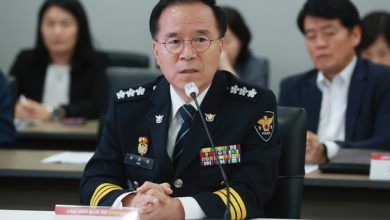
The Secretary to the Government of the Federation (SGF) George Akume, has announced a commitment to implementing comprehensive e-governance reforms aimed at boosting transparency and efficiency within Nigeria’s public service.
These reforms are part of President Bola Tinubu’s Renewed Hope Agenda, focusing on eight key areas: economic reform, national security enhancement, governance improvement, industrialization and digitalization, and agricultural development for food security.
Speaking at the Nigeria Govtech Conference and Awards in Abuja, Akume, represented by Barrister Olusegun Adekunle, emphasized the federal government’s dedication to digitalizing operations to create a more effective public service. He articulated that the e-governance initiative prioritizes digital transformation, the development of robust ICT infrastructure, and innovative policies to improve service delivery.
“One of the primary goals of this administration is to enhance public service delivery and ensure that government services are accessible, transparent, and effective,” Akume stated. He underscored the necessity of continued investment in digital transformation and the promotion of policies that support innovation and emerging technologies in governance.
Akume added, “We have made significant strides in integrating technology into governance, making digital transformation a cornerstone of our national development strategy. This gathering serves as a strategic platform for engagement, collaboration, and discussions on leveraging technology to improve governance and service delivery nationwide.”
Director-General of the Bureau of Public Service Reforms (BPSR) Dasuki Arabi, echoed the importance of digital transformation in Nigeria’s public service. He highlighted its potential to enhance service delivery, engage citizens, and foster inclusive governance.
Arabi expressed confidence that these e-governance reforms would position Nigeria as a leader in digital governance, enhancing transparency and accountability.
“The future of Nigeria’s public service lies in its ability to embrace digital transformation as a foundational aspect of governance,” Arabi noted. He emphasized that digital platforms could enhance social investment initiatives, connecting beneficiaries with vital resources and services, while also facilitating skill development and entrepreneurship training.
“With the right technology and innovation, we can fulfill the mandates of the Renewed Hope Agenda and create a more prosperous and inclusive society for all Nigerians,” he said.
The Renewed Hope Agenda embodies President Bola Ahmed Tinubu’s vision for a Nigeria where citizens can enjoy improved services, enhanced security, and equitable opportunities.
The conference, organized by the BPSR under the theme “Digital Innovations As A Catalyst for the Renewed Hope Agenda,” aimed to foster collaboration between the government and the tech industry. Attendees included government officials, tech industry leaders, and stakeholders discussing the role of ICT in enhancing public service delivery and overall national well-being.




